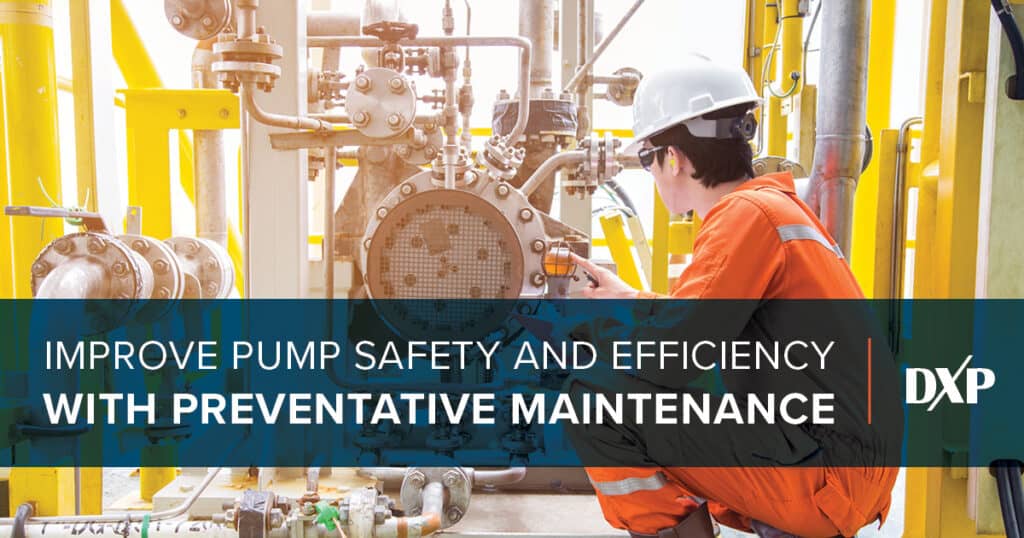Maintenance is critical when operating any type of equipment. You get the oil changed in your car or truck and you replace worn parts like brake pads and tires. Why wouldn’t you apply the same care to your pump systems and other industrial machinery? You depend on your pump every day.
The proper preventative maintenance schedule will keep it performing better and lasting longer–the key word being preventative. Taking care of issues before they develop into major problems helps prevent equipment failures, safety concerns, and costly breakdowns. Here are some of the important preventative maintenance procedures you should follow for your pump system:
Scheduled Inspections
One of the best things you can do is schedule routine equipment inspections and system testing. This can happen weekly, monthly, quarterly, or annually, depending on how your pump is utilized. Some processing applications will cause more wear and tear. More frequent inspections and maintenance services may be needed. You can have experienced operators perform the inspections, or you can bring in an outside professional for a thorough, unbiased assessment.
Lubrication, Seals, and Bearings
Also imperative to preventative maintenance is paying special attention to the lubrication, mechanical seals, and bearings. These are the items that tend to be weak points in a pump system. All seals should be air- and fluid-tight. The lubrication, whether grease or oil, needs to be clean and working effectively. Bearings should be turning smoothly. Any minor problems can quickly evolve into major pump failures if left ignored.
Other key items to inspect and maintain will include the impeller, shaft alignment, connection points, pump footings, and drive system. Look carefully and address any leaks that are found. It is always best to replace worn components as soon as they start showing signs of weakness. This is what preventative maintenance is all about.
Proactive System Monitoring
You should also actively monitor your pump system during regular operation. Experienced operators can usually tell when something isn’t working right. In addition, many excellent technological solutions can be integrated into your system. You can proactively monitor flow rates, temperatures, pressures, and other key performance indicators (KPIs) to detect problems early on and avoid catastrophic failures.
Minor Repairs and Troubleshooting
If there is a problem, waiting to address it is the last thing you should do. This is a recipe for disaster. You will save money in the long run with a brief shutdown to fix a minor issue or take care of necessary maintenance. Otherwise, you risk major problems developing. It could eventually cause longer shutdowns for more comprehensive and expensive repairs. The pump equipment could even fail completely and need to be completely rebuilt or replaced. That will definitely cost you more precious time and money compared to a minor repair.
Operator Training
Lastly, your operators need to have proper training. This is not necessarily a maintenance task, but it is something worth highlighting here. Anyone running the equipment or helping with maintenance and repairs should know what they are doing. This enables you to get the best performance and durability from your pump system. It also greatly improves safety at your facility. Good operators will be on top of the maintenance schedule and can catch issues as early as possible.
DXP Pacific is your pump maintenance resource in California, Nevada, and Arizona. We can provide pump equipment sales, custom configuration, and training, as well as professional preventative maintenance and repair services. We offer pump system maintenance packages that can be tailored specifically to your equipment and application. Please contact us today to learn more about pump maintenance.

